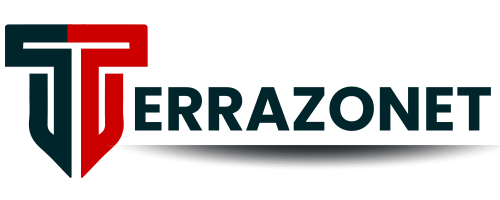Starting a business in Romania can be both an exciting and challenging journey. For entrepreneurs, whether local or foreign, the process of setting up a company may seem complicated due to the legal requirements, paperwork, and multiple steps involved. However, with the right information and guidance, opening a company in Romania can be a smooth process, offering access to one of the most dynamic markets in Eastern Europe.
At Buju, Stanciu&Asociatii, our team of lawyers has extensive experience in assisting clients with both criminal law and commercial law matters, including the establishment of businesses in Romania. Over the years, we have guided entrepreneurs, multinational corporations, and investors through every stage of the incorporation process, ensuring legal compliance and practical solutions.
In this article, we will walk you step by step through the main stages of starting a business in Romania, while also sharing key insights from our experience as one of the leading law firms in the country.
1. Choosing the Right Legal Form
The first step when starting a company in Romania is deciding the legal structure that best fits your business needs. Romanian law provides several options:
- SRL (Limited Liability Company) – the most common and flexible form, preferred by small and medium businesses. The liability of shareholders is limited to their contribution.
- SA (Joint Stock Company) – suitable for larger businesses and investments, often used by corporations.
- PFA (Authorized Natural Person) – designed for individuals offering professional services or freelance work.
- Branch or Subsidiary – commonly used by foreign investors who want to expand operations in Romania.
Selecting the right structure is crucial because it impacts taxation, liability, and reporting obligations. A lawyer Bucharest can provide tailored advice, ensuring the chosen legal form aligns with the long-term objectives of the business.
2. Reserving the Company Name
Once the structure is chosen, the next step is reserving a unique company name with the Romanian Trade Register (Oficiul National al RegistruluiComertului). The name must be distinctive and not conflict with existing registered businesses.
The process involves:
- Submitting 3 possible names for verification.
- Receiving confirmation of availability.
- Obtaining a name reservation certificate valid for 3 months.
This step is relatively simple but essential, as the company cannot proceed without an approved name.
3. Establishing the Registered Office
Every company in Romania must have a registered office. This can be:
- An owned property.
- A rented space.
- In some cases, the home address of a shareholder.
The registered office must be legally documented through a rental contract, ownership deed, or hosting agreement. For many foreign investors, this step may involve navigating local real estate regulations, an area where legal assistance is particularly valuable.
4. Drafting the Articles of Association
The Articles of Association (Act Constitutiv) is the core document of the company. It outlines:
- The name and registered office.
- The main activities of the company (according to CAEN codes).
- The share capital.
- The shareholders and their contributions.
- The management structure and decision-making rules.
This document must be drafted carefully, as it regulates how the business will operate. From our experience at Buju, Stanciu&Asociatii, poorly written articles often lead to internal conflicts later on. Having a lawyer involved ensures clarity, compliance, and long-term stability.
5. Share Capital Requirements
Romanian law requires a minimum share capital for certain company types:
- For SRL: a symbolic amount (even 1 RON, though usually businesses deposit more for credibility).
- For SA: a minimum of 90,000 RON, with at least 30% deposited before registration.
The capital must be deposited in a Romanian bank account before submitting documents to the Trade Register. Proof of deposit is attached to the incorporation file.
6. Submitting Documents to the Trade Register
The full incorporation file is submitted to the National Trade Register Office. It usually includes:
- Application for registration.
- Articles of Association.
- Proof of registered office.
- Bank certificate for share capital deposit.
- Copies of ID/passports for shareholders.
- Specimen signatures of directors.
Once submitted, the file is reviewed, and if complete, the company is registered within 3–5 working days.
7. Obtaining the Company Registration Certificate
After approval, the entrepreneur receives:
- The Registration Certificate (Certificat de Inregistrare).
- Unique Identification Code (CUI) – similar to a tax number.
- Proof of registration in the Trade Register.
From this moment, the company is legally established and can begin operations.
8. Fiscal Registration and VAT Options
Every company must be registered with the Tax Authority (ANAF). Depending on its activity, the company can choose:
- To remain a microenterprise (with turnover-based taxation).
- To opt for profit tax (16%) when exceeding certain thresholds.
- To register for VAT, if necessary.
These decisions are strategic, as they impact the financial efficiency of the business. A lawyer and accountant working together can help entrepreneurs select the optimal tax regime.
9. Opening a Bank Account
A Romanian bank account is required for daily business operations. Most banks ask for:
- The company’s registration documents.
- Identification documents for shareholders and directors.
- The registration certificate.
Having local legal assistance simplifies this step, especially for foreign investors unfamiliar with Romanian banking requirements.
10. Employment and Labor Obligations
If the company hires employees, it must comply with Romanian labor law:
- Drafting individual employment contracts.
- Registering contracts in Revisal (electronic labor register).
- Ensuring compliance with minimum wage, working hours, and employee rights.
At Buju, Stanciu&Asociatii, we have extensive experience in both labor law and criminal law, representing clients not only in business incorporation but also in preventing risks such as tax evasion, workplace safety violations, or labor disputes.
11. Licensing and Special Authorizations
Some businesses require additional licenses or permits (for example, restaurants, medical services, or financial activities). These must be obtained from the relevant authorities before starting operations.
Why Choose Professional Legal Assistance?
While many entrepreneurs attempt to handle company formation on their own, the process often raises challenges: incomplete documents, legal misinterpretations, or delays at the Trade Register. Working with a lawyer Bucharest ensures:
- Full compliance with Romanian corporate and fiscal law.
- Correct drafting of legal documents.
- Representation before authorities.
- Tailored advice on structure, taxation, and risk management.
At Buju, Stanciu&Asociatii, we combine our expertise in commercial law with our recognized experience in criminal law. This unique approach allows us to not only set up businesses but also to anticipate and prevent legal risks that may arise later, offering a 360-degree perspective for our clients.
Conclusion
Starting a company in Romania involves a series of clear but sometimes intricate steps: choosing the right legal form, reserving the company name, drafting the Articles of Association, registering with the Trade Register, and ensuring tax and labor compliance.
With the guidance of experienced professionals, this process can be efficient and straightforward. At Buju, Stanciu&Asociatii, we have successfully assisted numerous clients in launching and growing their businesses, from small local startups to international corporations.
If you are considering setting up a company in Romania, having the right legal support from a lawyer Bucharest can make the difference between a smooth start and unnecessary complications.
READ ALSO: Why Should Businesses Choose the Best Procure to Pay Software for Efficiency?











